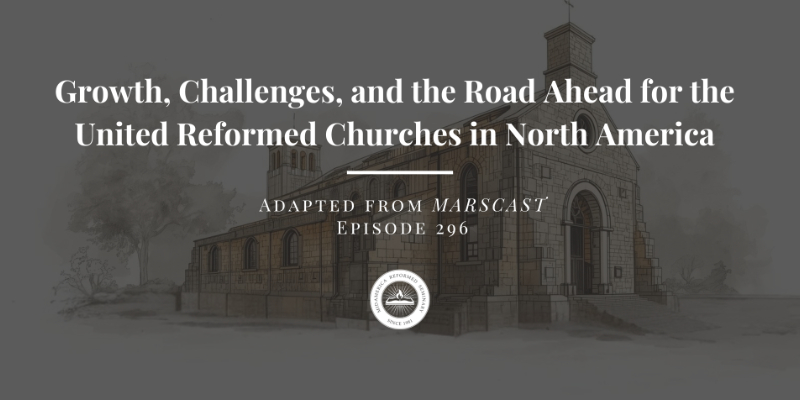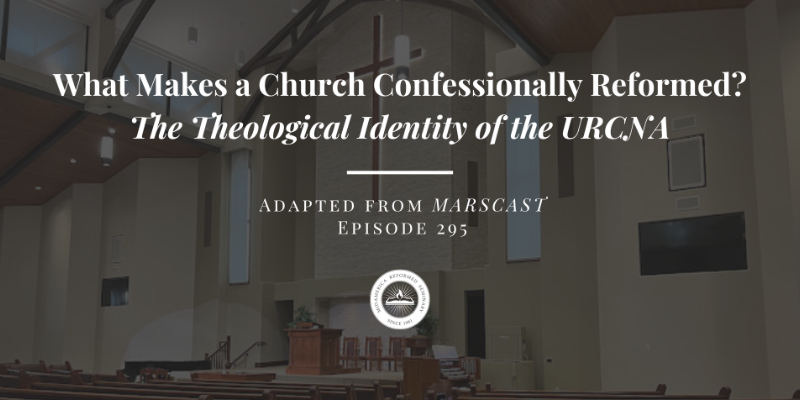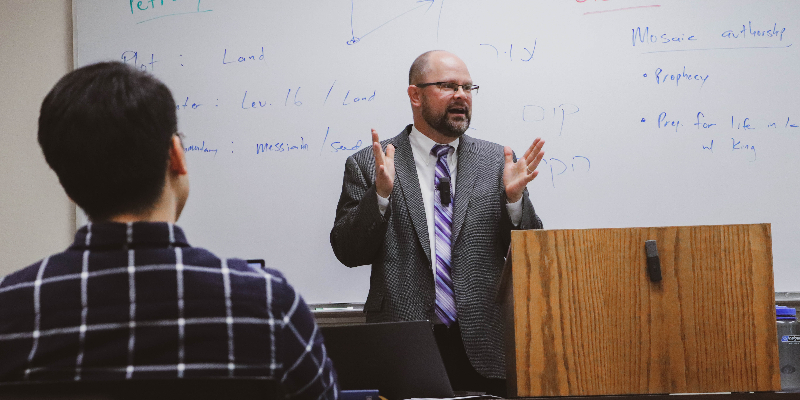
John Calvin Part 1: The Reluctant Reformer, the Relentless Theologian
This article is adapted from MARSCAST Episode 272, featuring Dr. Alan Strange.
John Calvin stands as one of the most formidable intellects and spiritual leaders of the Protestant Reformation. His influence on Christian thought, ecclesiastical structures, and the development of the Reformed tradition remains unparalleled in many respects. Despite his towering contributions to theology and pastoral practice, Calvin was a man who neither sought public acclaim nor aspired to the kind of influential role he eventually assumed, a paradoxical blend of reluctance and resolve which is what makes him so compelling. In this first installment of a two-part exploration, we peer into the foundational elements of his life: his formative years, his theological awakening, and the genesis of his magnum opus, The Institutes of the Christian Religion.
A Birth in Picardy: The Early Years of Jean Calvin
John Cauvin was born on July 10, 1509, in the Picardy region of France, specifically in the cathedral town of Noyon. Calvin was raised in a family closely tied to the ecclesiastical structures of the day. His father, Gerard Cauvin, served as a notary in the bishop's court and harbored significant ambitions for his son within the clerical hierarchy. The connections his father had afforded young Calvin early access to benefices, or ecclesiastical stipends, which were not uncommon in the pre-Reformation church but were increasingly criticized for being sinecures, positions that provided income without requiring the fulfillment of actual pastoral duties.
Between 1523 and 1528, Calvin pursued an arts degree in Paris, enrolling in the prestigious Collège de Montaigu. This institution had previously educated such luminaries as Erasmus of Rotterdam and Ignatius of Loyola, placing Calvin within a venerable intellectual tradition. His education was deeply rooted in Renaissance humanism, which should not be confused with secular humanism of a later age. Rather, Renaissance humanism emphasized ad fontes (“to the sources”), a motto encapsulating the scholarly return to original texts in Greek and Latin. For the Reformers, this principle extended to the Hebrew Scriptures and the Greek New Testament, thereby sowing the seeds for a more textually grounded theology.
A Vocational Detour: Law School and Literary Aspirations
Though originally destined for a clerical path, Calvin’s academic journey took a sudden turn due to a conflict between his father and the ecclesiastical authorities. In 1520, Gerard Cauvin was excommunicated, a disciplinary measure more reflective of political maneuvering than theological heresy. This incident prompted him to redirect his son from theology to the study of law.
Calvin obediently relocated to Orléans and later Bourges, where he studied under some of France’s most esteemed legal minds. His aptitude in this field was evident; one professor lamented that France had lost its finest legal talent when Calvin eventually turned back to theology. Calvin’s legal studies honed his analytical rigor and precision, hallmarks that would later characterize his theological writings.
The death of Calvin’s father in 1531 freed him from familial expectations. He returned to Paris and resumed his engagement with humanist scholarship. It was during this period that he published his first work, a commentary on Seneca’s De Clementia. This effort to establish himself in the academic world ultimately met with limited success. Yet, in hindsight, this disappointment appears providential, as it nudged Calvin toward a deeper association with Protestant thinkers such as Nicholas Cop and other reform-minded colleagues at the University of Paris.
A Quiet but Defining Conversion
Calvin’s spiritual transformation did not occur amid thunderclaps or existential crises, as was the case with Martin Luther. Instead, it unfolded more subtly. In his Commentary on the Psalms, Calvin later reflected that in either late 1533 or early 1534, "God subdued my heart,” imagery that suggests not a mild philosophical shift but a decisive divine intervention, a surrender to the sovereign grace of God.
Following his conversion, Calvin became an increasingly public advocate for the Reformation. His alignment with Protestant ideals coincided with mounting tension in France between emerging Reformers and entrenched Catholic authorities. One pivotal moment was the infamous Placard Affair of 1534, in which anti-Catholic posters were brazenly displayed across Paris and even on the door of King Francis I’s bedchamber. This act of defiance was interpreted not merely as religious dissent but as political insubordination. In the ensuing crackdown, many Protestants, including Calvin, were forced to flee the country.
The Institutes: A Theological Tour de Force
While in exile, Calvin turned his energy to articulating a coherent Protestant theology. By March 1536, at just 27 years old, he published the first edition of The Institutes of the Christian Religion. The text was addressed to King Francis I in an effort to dispel misconceptions about the Protestant faith and to defend its adherents against charges of sedition.
Though comparatively brief in its initial form, The Institutes was immediately hailed as a work of theological brilliance. Calvin followed the pedagogical structure of Luther’s Small Catechism, organizing his material around four major components: the law, the Apostles’ Creed, the Lord’s Prayer, and the sacraments. He also included two supplemental chapters, one refuting the Roman Catholic view of the sacraments and another addressing Christian liberty, ecclesiastical authority, and civil governance.
One notable point of clarification: despite widespread associations between Calvin and the doctrine of predestination, this theme occupied a relatively minor place in the 1536 edition. Moreover, his 1545 catechism did not include a single question on the topic, suggesting that while Calvin defended predestination when necessary, he did not treat it as the linchpin of his theological system.
Geneva Beckons: A Reluctant Pastorate
With the political climate in France becoming increasingly hostile, Calvin made plans to travel to Strasbourg, where he hoped to study under the Reformist theologian Martin Bucer. However, on his journey, he stopped in Geneva, a city that had recently adopted Protestant reforms but was struggling to implement them.
There, he encountered William Farel, a zealous Reformer who implored Calvin to remain and help solidify Geneva’s ecclesiastical structures. Calvin demurred, citing his desire for a quiet life of study. But Farel, invoking divine judgment, warned that God would curse Calvin’s retreat from duty. Faced with this thunderous exhortation, Calvin relented and accepted the task.
During his initial tenure in Geneva, Calvin drafted a new confession of faith and attempted to institute church discipline, most controversially, the right to excommunicate unrepentant sinners. The city magistrates, however, resisted this measure, preferring to keep such authority within secular hands. The tension culminated in 1538 when Calvin and Farel refused to administer the Lord’s Supper to individuals whom the Council had forbidden them to discipline. As a result, both Reformers were expelled from the city.
In our next installment, we will follow Calvin to Strasbourg, examine his eventual return to Geneva, and explore his enduring influence on Reformed theology and ecclesiastical governance. For now, we are left with the portrait of a young man whose intellectual gifts, pastoral courage, and theological clarity set the course for centuries of Christian thought.
This adaptation was created with the use of ChatGPT
and edited by Director of Marketing, Jared Luttjeboer.
Recent articles




